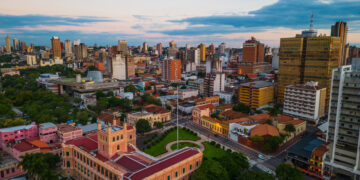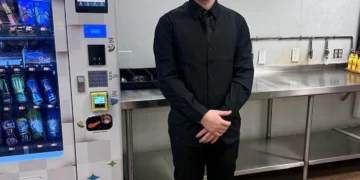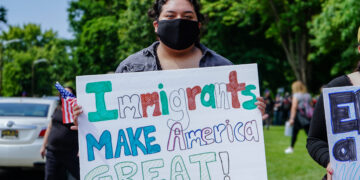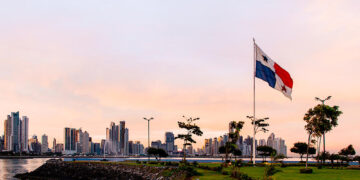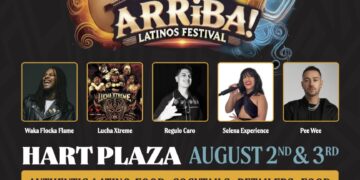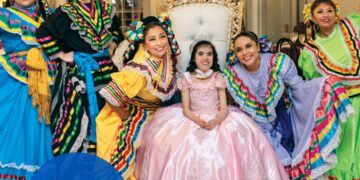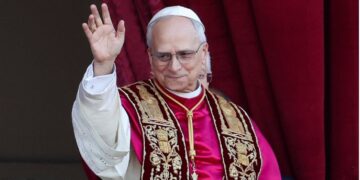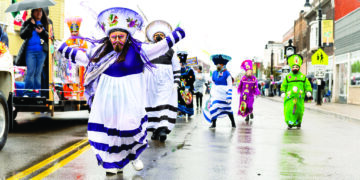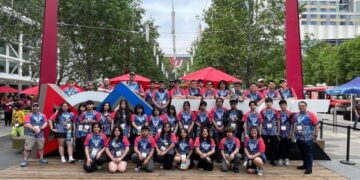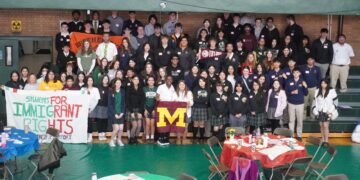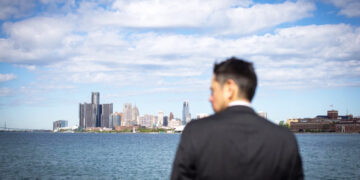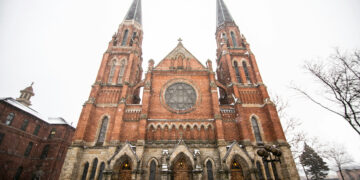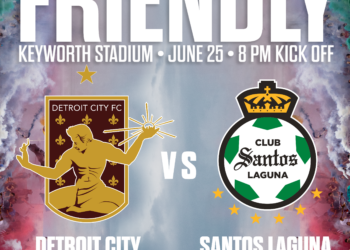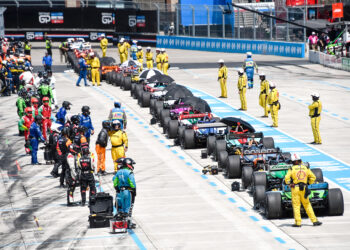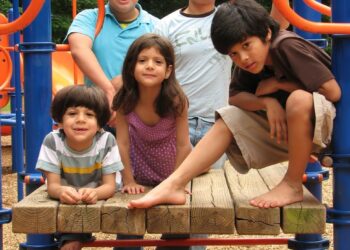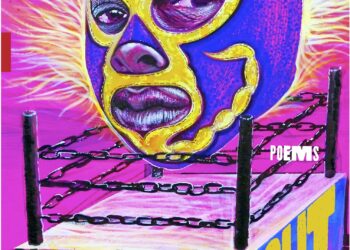Within the residential streets of the Springwells neighborhood, a seemingly ordinary house hosts live punk rock shows. The home known as the Voodoo House is a place where groups of teens and young adults who identify as misfits come together at night to feel united by music.
In the basement of Voodoo House, the flags of Che Guevara, the National Bolshevik Party, and a rainbow Detroit “D” flag hang on the walls. The space hosts bands like Jail and Mechanophilia and more well known bands such as World Peace, The HIRS Collective, and Cloud Rat.
Lexi Drysdale, the proprietor of Voodoo House, is 25, has bright red hair, wears lots of eyeliner, and sports a distressed black leather jacket. She juggles many roles, including that of lead vocalist of the hardcore punk band Cemetery Girl and Voodoo House talent booker.
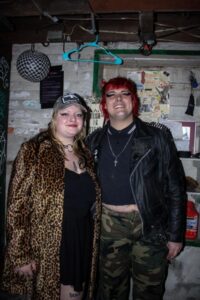
In 2021, Drysdale turned her Southwest Detroit home into a venue just as Michigan emerged from its COVID-19 slumber. Before the pandemic, she held small parties with friends who would perform. But after more than a year of being indoors and almost three years of a global health crisis, Drysdale wanted to play music and be around people more than ever.
“After that [COVID], I decided that I wanted to book shows super regularly, be it in our basement or just at some of the different venues around the city,” Drysdale said. The shows at the house became a regular event. Every month, there would be a couple of line-ups posted online for people to come and see.”
Drysdale says she had always felt like a misfit compared to her Downriver peers. In high school, she didn’t identify with mainstream media or mainstream ideology, so she began seeking other outlets that accepted her.
“I definitely processed things differently than the other kids, especially the boys. I don’t think it’s a coincidence that it was around this time I started wishing I wasn’t a “boy,” said Drysdale, who identifies as a trans woman.
Her search for validation led her to Trumbullplex, a BIPOC led housing collective and show space in the Woodbridge Neighborhood that hosts a variety of music and art shows.
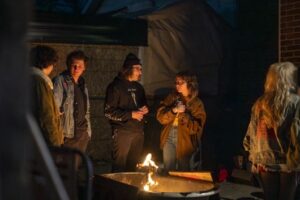
“It was really the first time I met a group of people who had similar values, similar music, taste, and fashion taste to me. And it’s one of the first places I feel like I actually fit in,” Drysdale said.
Hanging out at the Trumbullplex inspired Drysdale to venture into other alternative spaces, such as Crow Manor and the old Sanctuary, where she could hear punk music and be part of a community.
While Detroit has been mostly known for Motown and Techno, punk rock and hardcore have been just as influential.
In the 1970s, Detroit’s punk, new wave, and underground rock scene established itself in places like Bookies Club 870 in Highland Park, a gay bar legendary for hosting artists such as The Misfits, Joan Jett & The Blackhearts, and The Police. At a time when many white suburbanites wouldn’t dare step foot in Detroit, suburban teens who didn’t identify with the culture of a nuclear family found refuge there.
Those too young to get into the bar crowded outside Bookies to hear the music. Many of those same teens would later come together through their counterculture ideals and open Freezer Theatre, a DIY club in a vacant building in Cass Corridor. Bands like Negative Approach and Bored Youth were part of the birth of Freezer Theatre, fueling the Midwest hardcore scene.
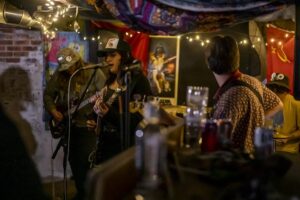
“The Detroit hardcore scene was kind of the sum total of everybody’s effort and participation,” said Otto Buj, producer of the film, Dope, Hookers, and Pavement: The Real and Imagined History of Detroit Hardcore.
Buj says ambitious, clever, curious kids, in addition to being misfits and outsiders in the regular world, contribute to physically building up the punk community.
While some may think the punk scene is a thing of the past, Buj says, “This is part of a long tradition, some people stick around, some get washed away by adulthood, but then a new generation of kids comes up.”
As a member of the queer community, Drysdale says her community is watching the rapid growth of the far right-wing movements that embrace homophobia, transphobia, and white supremacy.
“People are pissed and need an outlet. People need something to do. Drysdale said.
Voodoo House is supported by its queer and BIPOC community directly via donations that pay the performers and sometimes even have some left over for the house.
“It’s pretty cool to see a bunch of like-minded people who like a lot of the same music take care of itself that way,” Drysdale said.
Drysdale enjoys collaborating with the alternative music community and opening the space to new bands and performers. She says creating a line-up for shows is part of the fun and puts lots of thought into having different or similar bands play together in one night. Most recently, Voodoo House has begun to host alternative drag shows.
“We try really hard to make it a space where queer people and people of color and just people who aren’t represented well in the rest of society get a place to be themselves and have a voice,” said Drysdale


